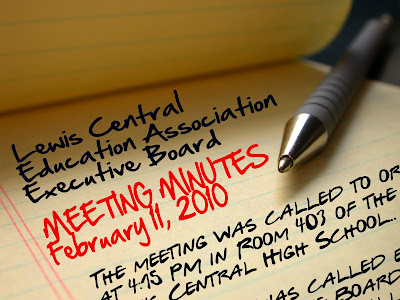Educators share how unfair laws are threatening their retirement security — and possibly yours.
Two little-known laws, the Government Pension Offset and Windfall Elimination Provision, are affecting the retirement benefits of educators. NEA members, along with Dennis Van Roekel, explain how damaging these laws are and why we need to work to repeal them.
Want to Learn More?
Lynn Brooks Hunt's Social Security benefit went from $1,700 a month to just $188--just because she's a teacher. Read her story in this month's This Active Life magazine and learn more about the unfair federal laws that are chipping away at some educators' retirement.
What You Can Do
It's easy.
1. Go to NEA’s electronic petition to Congress. If you are or will be personally affected by GPO or WEP, add your story to the pre-written text. If your elected officials have taken a position for repeal, thank them. It’s important that they know it matters to you.
2. Send a letter to your member of Congress or call the Capitol switchboard at (202) 224-3121, ask for your Representative and Senators by name, and tell them to repeal GPO and WEP.
Got a little more time?
Write a letter to your local newspaper explaining why GPO and WEP should go.
Wednesday, February 17, 2010
Will NCLB Be Left Behind?
By Alain Jehlen
There’ll be some changes made in the No Child Left Behind law if proposals being put forward by officials of the Department of Education win approval in Congress. There's been no formal announcement and not much in the way of details, but some important elements have been reported by The New York Times and The Washington Post:
No more “adequate yearly progress,” which 30 percent of schools already can’t make.
No more “utopian” (Secretary Arne Duncan’s term) 2014 deadline for every student in America to be “proficient.”
Instead, a new goal: All students must leave high school “college or career ready.” What does that mean? A consortium of states is working on common standards to define it.
All in all, the proposal for a new law is expected to be patterned on the current “Race To The Top,” which is part of the Obama Administration's economic recovery program. One feature of Race To The Top is heavy pressure on states to evaluate teachers on the basis of student test scores. Most teachers consider that unfair because student scores depend on many factors over which teachers have no control. NEA leaders say tying test scores to teacher evaluation would also be counterproductive because it would punish teachers for taking on the hardest challenges in the most difficult schools, where extraordinary effort is needed just to get average test scores.
Another feature of Race To The Top which federal education leaders reportedly want to use in a revamped NCLB is a competitive grant approach to doling out the billions. Officials have said they want to move away from formula funding—giving out money according to how many students a state serves in various categories, such as low-income. That’s how most of the money has been distributed since the law was first passed as the Elementary and Secondary Education Act under President Lyndon Johnson in 1965.
The new idea is to get schools to do what Washington thinks is best by making states and districts compete for the limited federal money.
The Bush Administration strategy was mostly to get schools to change by punishing them. President Obama seems inclined to reverse that. Or as Teddy Roosevelt didn’t say, “Speak loudly but carry a big carrot.”
Earlier this month, the National Conference of State Legislatures (NCSL) issued a report titled "Education at the Crossroads" proposing a very different vision of the state and federal roles in education.
The federal government, said a bipartisan panel of state legislators, should focus on outcomes, like cutting the drop-out rate, and let states and local districts decide how to get there. Federal officials are “not very good about dealing with student achievement and school reform because they use a cookie-cutter, top-down approach focused on process, not results,” said NCSL staff member David Shreve. He said some of the requirements imposed by federal officials for states applying for Race To The Top Funds have “little to do with student achievement.”
“There’s a better way to support schools than being involved in day-to-day matters,” Shreve said.
In addition to the major substantive changes he will propose for the law, Secretary Duncan has made clear that he also wants a new name. “No Child Left Behind,” which once sounded so good that nobody could be against it, has become a symbol of federal initiatives gone wrong.
NEA has been running a marathon, online brainstorming session to come up with a good new name. Click here to read some of the entries so far and add your own.
That discussion board is part of a broader forum in which educators are talking about how NCLB affects their students and debating a wide range of ideas for changing NCLB.
Martin Richter wrote:
"Part of the genius of American education has been that [it] encourages creativity and innovation. If we begin to emphasize test-taking and pencil/paper activities, we are likely to develop a nation of people who are good at taking tests, and very little else."
Jane Watson wrote:
"The biggest problem is poverty. Politicians need to realize that parents need to be paid a living wage and that it's not the teacher’s fault if the child is hungry or ill. (In Yakima, the school board gave the retiring superintendent a $300,000 retirement, but has not yet settled with the paraeducators, most of whom bring home less than $1,000 a month.)"
Many of those who commented agree on some important ideas: Stop the test score obsession, one size doesn't fit all, parents and society must share responsibility. But it's a free-wheeling debate with some energetic disagreements.
Join in and speak your mind!
There’ll be some changes made in the No Child Left Behind law if proposals being put forward by officials of the Department of Education win approval in Congress. There's been no formal announcement and not much in the way of details, but some important elements have been reported by The New York Times and The Washington Post:
No more “adequate yearly progress,” which 30 percent of schools already can’t make.
No more “utopian” (Secretary Arne Duncan’s term) 2014 deadline for every student in America to be “proficient.”
Instead, a new goal: All students must leave high school “college or career ready.” What does that mean? A consortium of states is working on common standards to define it.
All in all, the proposal for a new law is expected to be patterned on the current “Race To The Top,” which is part of the Obama Administration's economic recovery program. One feature of Race To The Top is heavy pressure on states to evaluate teachers on the basis of student test scores. Most teachers consider that unfair because student scores depend on many factors over which teachers have no control. NEA leaders say tying test scores to teacher evaluation would also be counterproductive because it would punish teachers for taking on the hardest challenges in the most difficult schools, where extraordinary effort is needed just to get average test scores.
Another feature of Race To The Top which federal education leaders reportedly want to use in a revamped NCLB is a competitive grant approach to doling out the billions. Officials have said they want to move away from formula funding—giving out money according to how many students a state serves in various categories, such as low-income. That’s how most of the money has been distributed since the law was first passed as the Elementary and Secondary Education Act under President Lyndon Johnson in 1965.
The new idea is to get schools to do what Washington thinks is best by making states and districts compete for the limited federal money.
The Bush Administration strategy was mostly to get schools to change by punishing them. President Obama seems inclined to reverse that. Or as Teddy Roosevelt didn’t say, “Speak loudly but carry a big carrot.”
Earlier this month, the National Conference of State Legislatures (NCSL) issued a report titled "Education at the Crossroads" proposing a very different vision of the state and federal roles in education.
The federal government, said a bipartisan panel of state legislators, should focus on outcomes, like cutting the drop-out rate, and let states and local districts decide how to get there. Federal officials are “not very good about dealing with student achievement and school reform because they use a cookie-cutter, top-down approach focused on process, not results,” said NCSL staff member David Shreve. He said some of the requirements imposed by federal officials for states applying for Race To The Top Funds have “little to do with student achievement.”
“There’s a better way to support schools than being involved in day-to-day matters,” Shreve said.
In addition to the major substantive changes he will propose for the law, Secretary Duncan has made clear that he also wants a new name. “No Child Left Behind,” which once sounded so good that nobody could be against it, has become a symbol of federal initiatives gone wrong.
NEA has been running a marathon, online brainstorming session to come up with a good new name. Click here to read some of the entries so far and add your own.
That discussion board is part of a broader forum in which educators are talking about how NCLB affects their students and debating a wide range of ideas for changing NCLB.
Martin Richter wrote:
"Part of the genius of American education has been that [it] encourages creativity and innovation. If we begin to emphasize test-taking and pencil/paper activities, we are likely to develop a nation of people who are good at taking tests, and very little else."
Jane Watson wrote:
"The biggest problem is poverty. Politicians need to realize that parents need to be paid a living wage and that it's not the teacher’s fault if the child is hungry or ill. (In Yakima, the school board gave the retiring superintendent a $300,000 retirement, but has not yet settled with the paraeducators, most of whom bring home less than $1,000 a month.)"
Many of those who commented agree on some important ideas: Stop the test score obsession, one size doesn't fit all, parents and society must share responsibility. But it's a free-wheeling debate with some energetic disagreements.
Join in and speak your mind!
Labels:
ESEA/NCLB
Suspended in Seattle
We were punished for protecting our kids.
By Juli Griffith and Lenora QuartoWe protected our special education students from the Washington state test at the request of their parents. For that, our district wants to punish us.
The two of us team-teach 12 students, K-5, in a self-contained classroom for students with multiple disabilities.
In 2007, we were told to administer the Washington Alternate Assessment System to our students in grades 3-5, and we did. It took nearly three months because the test had to be given a little at a time, to each student individually. Meanwhile, our other six children were with our assistants.
Although the test was modified, it measured our students achievement against grade level standards. Because our students are cognitively at ages six months to two years, the assessment was not at their level. It had nothing to do with the goals and objectives designed for them.
Our goal might be to teach them to hold a spoon or recognize their name in print, and the test covered fractions. In fact, one student would start crying every time we got to the part on fractions.
So last year, we described the test to the parents. They said it was ridiculous. One said, “If I had known you were doing this, I would have told you to stop.” Another said, “I’m sick of tests that tell what my child can’t do. I want to see what he can do.”
We did our own research and found that parents do have a right to refuse state assessments. Since the parents had expressed their opinions to us, we thought this was all that was needed. So we didn’t give the test.
The way the district sees it, we were given a directive and didn’t follow it. The reason why held little significance to them.
The district feels we influenced the parents. Nothing could be further from the truth. As teachers, our job is to work with parents and guardians and, with informed minds, determine what is best for their child.
Administration did not contact the parents to ask whether they wanted their children tested, nor did they tell us the parents request had to be in writing — not until our first meeting about suspending us for 10 days without pay.
Once we knew they wanted the refusal requests in writing, we got them. At our second meeting with administration, we and our Seattle Education Association representative presented these letters.
We were confident that once administration saw our parents' wishes in writing, they would know why we did not administer the test. We were wrong.
With support from the Seattle Education Association and the Washington Education Association, we are appealing the district's 10-day suspension.
Labels:
Education News
The Recession Hits Home -- And then the Classroom
How job loss and a suffering economy are hurting student success.
In January, the technology giant Dell closed its shiny new plant in Forsyth County, North Carolina, and terminated more than 900 jobs. It’s a decision that doesn’t compute well for kids.
Recent studies have shown that a parent’s job loss can have devastating effects on children. In the short term, they’re much more likely to struggle in school, and the ill effects may last long into adulthood. And it’s not just North Carolina’s children who have been caught in the economic chaos. Across the country, communities have been gripped and tossed by a recession that may be over – but still has left nearly 6 million people out of work.
“We have always known that socio-economic status and changes in socio-economics affect students and their ability to be successful in the classroom,” says Tripp Jeffers, president of North Carolina’s Forsyth County Association of Educators. “When students are worried about whether their mom or dad is going to be able to find a job, whether they’re going to have electricity that week, or whether they’re going to have to move, all those are stresses that undermine their academic success. We’ve always known that to be the case – and it’s just being amplified by the current recession.”
The latest study, published by the National Bureau of Economic Research in November, looked at homes where a parent had lost a job and found that those children had a 15 percent greater chance of repeating a grade. Further investigation found that those students hadn’t had any greater chance of retention before the job loss, “suggesting a causal link between the parental employment shock and children’s academic difficulties.” For students whose parents had a high school education or less, it was worse; for students whose parents had completed some college, the effects were minimal.
Other research has shown that the effects of parental job loss can extend beyond childhood. In January, an Australian economist found that, after parents lost their jobs, their teenage children were less likely than their peers to enroll in community college or other higher education, maybe because they felt pressure to earn money for their families. And these can be long-lasting effects – in 2005, a Canadian study found that children of parents who lost their jobs earned about 9 percent less, on average, than similar children of parents who held on to their jobs. They also were more likely to receive unemployment and other government welfare benefits.
None of this surprises David Stephenson, a retired guidance counselor from Rhode Island, where unemployment neared 13 percent in January. The loss of a parent’s job likely has a two-fold effect, he suggests. On the one hand, even though you might think the parent suddenly has all this time to devote to the child’s education, it really doesn’t work like that.
“When people are obsessed with other things in their lives, they’re much less likely to be involved in their kids’ lives,” he says. “When Mom and Dad are worried about where the food is coming from or if they’re going to lose the house, then the last thing they’re worried about is whether the algebra is done.”
At the same time, their kids are distracted from their schoolwork too, Stephenson points out. “They know they cost money. They know they put financial demands on the family. They get that guilt going.”
But job loss doesn’t have to mean the end of a child’s academic career. The study showed clearly that well-educated parents, despite job loss, were able to somehow protect their children from disastrous consequences. “[They] may be more likely to maintain...behaviors that facilitate children’s academic success even in the face of short run income or other disruptions,” the study’s authors, Ann Huff Stevens and Jessamyn Schaller, wrote.
Educators can also help these and other students in a variety of ways. Just being aware – and sensitive to – the conditions of a child’s home life can be helpful. Stephenson recalls a student of years ago whose grades and attendance took a precipitous drop, prompting school officials to hold a “disciplinary hearing” with her.
“The first words out of her mouth were, ‘Right after Christmas, my mother kicked me out so her boyfriend could move in, and I’ve been living in a car with my boyfriend, but then the car caught on fire and my books burned up.’”
Did that child need to be suspended? Stephenson definitely didn’t think so. What she needed was more academic support and social services to help her find a more stable place to live.
“You just don’t know what might be happening in a student’s life,” the retired counselor says.
Of course, many educators have their own recession-related problems, especially the thousands who were laid off at the start of this school year and the many more who face unemployment next year. “We have a number of members whose husbands or wives have lost their jobs – which makes their own work more stressful,” North Carolina’s Tripp Jeffers says. It also makes the work of the Association around salary and benefits even more crucial.
For its part, NEA has urged Congress to extend aid provided by the American Recovery and Investment Act, which provided nearly $50 billion to states to save more than 250,000 education jobs, and it applauds President Obama’s job initiatives, which should help keep more educators and others off the unemployment line. “All in all, President Obama’s proposed 2011 budget bodes well for education,” said NEA President Dennis Van Roekel. “Even in these tough economic times, it is clear that the President is unwilling to sacrifice the future of our children and our nation."
In January, the technology giant Dell closed its shiny new plant in Forsyth County, North Carolina, and terminated more than 900 jobs. It’s a decision that doesn’t compute well for kids.
Recent studies have shown that a parent’s job loss can have devastating effects on children. In the short term, they’re much more likely to struggle in school, and the ill effects may last long into adulthood. And it’s not just North Carolina’s children who have been caught in the economic chaos. Across the country, communities have been gripped and tossed by a recession that may be over – but still has left nearly 6 million people out of work.
“We have always known that socio-economic status and changes in socio-economics affect students and their ability to be successful in the classroom,” says Tripp Jeffers, president of North Carolina’s Forsyth County Association of Educators. “When students are worried about whether their mom or dad is going to be able to find a job, whether they’re going to have electricity that week, or whether they’re going to have to move, all those are stresses that undermine their academic success. We’ve always known that to be the case – and it’s just being amplified by the current recession.”
The latest study, published by the National Bureau of Economic Research in November, looked at homes where a parent had lost a job and found that those children had a 15 percent greater chance of repeating a grade. Further investigation found that those students hadn’t had any greater chance of retention before the job loss, “suggesting a causal link between the parental employment shock and children’s academic difficulties.” For students whose parents had a high school education or less, it was worse; for students whose parents had completed some college, the effects were minimal.
Other research has shown that the effects of parental job loss can extend beyond childhood. In January, an Australian economist found that, after parents lost their jobs, their teenage children were less likely than their peers to enroll in community college or other higher education, maybe because they felt pressure to earn money for their families. And these can be long-lasting effects – in 2005, a Canadian study found that children of parents who lost their jobs earned about 9 percent less, on average, than similar children of parents who held on to their jobs. They also were more likely to receive unemployment and other government welfare benefits.
None of this surprises David Stephenson, a retired guidance counselor from Rhode Island, where unemployment neared 13 percent in January. The loss of a parent’s job likely has a two-fold effect, he suggests. On the one hand, even though you might think the parent suddenly has all this time to devote to the child’s education, it really doesn’t work like that.
“When people are obsessed with other things in their lives, they’re much less likely to be involved in their kids’ lives,” he says. “When Mom and Dad are worried about where the food is coming from or if they’re going to lose the house, then the last thing they’re worried about is whether the algebra is done.”
At the same time, their kids are distracted from their schoolwork too, Stephenson points out. “They know they cost money. They know they put financial demands on the family. They get that guilt going.”
But job loss doesn’t have to mean the end of a child’s academic career. The study showed clearly that well-educated parents, despite job loss, were able to somehow protect their children from disastrous consequences. “[They] may be more likely to maintain...behaviors that facilitate children’s academic success even in the face of short run income or other disruptions,” the study’s authors, Ann Huff Stevens and Jessamyn Schaller, wrote.
Educators can also help these and other students in a variety of ways. Just being aware – and sensitive to – the conditions of a child’s home life can be helpful. Stephenson recalls a student of years ago whose grades and attendance took a precipitous drop, prompting school officials to hold a “disciplinary hearing” with her.
“The first words out of her mouth were, ‘Right after Christmas, my mother kicked me out so her boyfriend could move in, and I’ve been living in a car with my boyfriend, but then the car caught on fire and my books burned up.’”
Did that child need to be suspended? Stephenson definitely didn’t think so. What she needed was more academic support and social services to help her find a more stable place to live.
“You just don’t know what might be happening in a student’s life,” the retired counselor says.
Of course, many educators have their own recession-related problems, especially the thousands who were laid off at the start of this school year and the many more who face unemployment next year. “We have a number of members whose husbands or wives have lost their jobs – which makes their own work more stressful,” North Carolina’s Tripp Jeffers says. It also makes the work of the Association around salary and benefits even more crucial.
For its part, NEA has urged Congress to extend aid provided by the American Recovery and Investment Act, which provided nearly $50 billion to states to save more than 250,000 education jobs, and it applauds President Obama’s job initiatives, which should help keep more educators and others off the unemployment line. “All in all, President Obama’s proposed 2011 budget bodes well for education,” said NEA President Dennis Van Roekel. “Even in these tough economic times, it is clear that the President is unwilling to sacrifice the future of our children and our nation."
Labels:
Education News
Tuesday, February 16, 2010
Teacher Quality Committee Meeting Minutes 02/16/2010

Teacher Quality - February 16, 2010 Minutes
The meeting was called to order by Dave Black at 4:33 p.m. Member present: Barb Grell, Tom McLaughlin, Kim McLlaughlin, Linda Hahn, Jeanne Bartholow, Sean Dunphy, Pat Thomas, Al Lorenz, Mark Schweer, Kim Jones, Dave Black, Chuck Story, and Laurie Thies
Approval of Minutes – Motion made by Sean Dunphy to approve the April 1st minutes, seconded by Barb Grell.
Budget – Dave shared that because the budget was cut by 10%, we did not have enough money to cover 2 days of PD this year. With the current staff, it takes about $59,000 to cover the cost of one PD day. We currently have $92,069 in the budget. We will pay for some committee work this year and carry the remaining balance into next year. There was also some discussion on Market Factor Pay. We have had two rounds of applications for this money, 8 teachers were approved during the first round and 4 were approved in the second round. The district plans to offer a third round, with $4,300 left in this pot of money. The district will identify the areas of need and get information out to staff.
Professional Development Day – March 1st – Kim shared a tentative agenda for the day and explained that much of the work on March 1st would be around gaining some common understanding of the Essential Concepts and Skills. There were some concerns expressed about the need for communication and dialogue among the DLT, content teams, and teachers. Teachers expressed the need to have “two way communication” and more information about the implementation plan that is due on July 1st, 2010. A motion was made by Tom M. to accept the plan for March 1st and seconded by Kim M. Vote was unanimous.
Site Visit Reflection – Dave shared some strengths that the site visit team noted in the district (climate, CTE, DLT, Co-teaching, alignment, etc.) and also shared that there were some areas of non-compliance that are already being attended to. Some of these included the lack of a SIAC, notifications of non-discrimination were missing a protected class, TAG identification at the primary and secondary level, and some issues with “offer and teach” at the HS.
Next Meeting Date – March 23rd from 4:15-5:30
Adjournment – Motion made at 5:45 by Barb G. to adjourn, seconded by Kim M.
The meeting was called to order by Dave Black at 4:33 p.m. Member present: Barb Grell, Tom McLaughlin, Kim McLlaughlin, Linda Hahn, Jeanne Bartholow, Sean Dunphy, Pat Thomas, Al Lorenz, Mark Schweer, Kim Jones, Dave Black, Chuck Story, and Laurie Thies
Approval of Minutes – Motion made by Sean Dunphy to approve the April 1st minutes, seconded by Barb Grell.
Budget – Dave shared that because the budget was cut by 10%, we did not have enough money to cover 2 days of PD this year. With the current staff, it takes about $59,000 to cover the cost of one PD day. We currently have $92,069 in the budget. We will pay for some committee work this year and carry the remaining balance into next year. There was also some discussion on Market Factor Pay. We have had two rounds of applications for this money, 8 teachers were approved during the first round and 4 were approved in the second round. The district plans to offer a third round, with $4,300 left in this pot of money. The district will identify the areas of need and get information out to staff.
Professional Development Day – March 1st – Kim shared a tentative agenda for the day and explained that much of the work on March 1st would be around gaining some common understanding of the Essential Concepts and Skills. There were some concerns expressed about the need for communication and dialogue among the DLT, content teams, and teachers. Teachers expressed the need to have “two way communication” and more information about the implementation plan that is due on July 1st, 2010. A motion was made by Tom M. to accept the plan for March 1st and seconded by Kim M. Vote was unanimous.
Site Visit Reflection – Dave shared some strengths that the site visit team noted in the district (climate, CTE, DLT, Co-teaching, alignment, etc.) and also shared that there were some areas of non-compliance that are already being attended to. Some of these included the lack of a SIAC, notifications of non-discrimination were missing a protected class, TAG identification at the primary and secondary level, and some issues with “offer and teach” at the HS.
Next Meeting Date – March 23rd from 4:15-5:30
Adjournment – Motion made at 5:45 by Barb G. to adjourn, seconded by Kim M.
Labels:
TQC Minutes
Thursday, February 11, 2010
LCEA Executive Board Meeting Minutes 02/11/2010

LCEA February Meeting Minutes
Date: 2/11/2010
Place: Middle School Media Center
Time: 4:15
Roll Call: Barb Motes (absent), Kim McLaughlin, Jennifer Doorlag (absent), Dave Bergman, Tom McLaughlin
HS Reps: Allison Towne (absent), Ruth Kreger, Sharon Crawley (absent)
MS Reps: Margot Argotsinger, Beth Frank, Al Lorenz, Dot Sillau
TH Reps: Lisa Scieszinski, Joanna Stenlund (absent), Kathy Dorsey, Farah Guetter (absent)
Kreft Reps: LoriAnn Brougham (absent), Lee Dwyer, Angie Tucker
Secretary’s Report (Kim McLaughlin)
• Bergman moved that the January meeting minutes be approved, Tucker seconded it, and the motion passed.
Treasurer’s Report (Jen Doorlag)
• Frank moved that the report be approved, Bergman seconded it, and the motion passed.
Building Reports
• Kreft: Someone, on contract hours, is doing something having to do with his/her religion, including praying (individually). We discussed potential ramifications.
• Titan Hill: In the meeting with the principals, administration expressed concern about the way that teachers will be remunerated for attending a science conference—some will be paid by a grant, and some (the second grade teachers) will be paid by the District. Taxes will come out differently, and they don’t want teachers to worry about that.
• Middle school: The big concern is being on the “persistently low achieving” list. There is an ICN meeting with the state department on Friday.
• High school: We have another teacher who has interviewed for another position, and that teacher is being asked for a letter of resignation, though the teacher has not signed a contract with another district.
Committee Reports
• Negotiations (Beth Frank): Negotiations were last night. It was a short night because the Board was not ready to negotiate. Early retirement incentives, we discovered, do not come out of general fund—it comes out of the management fund. There was a discussion about insurance—the District wants staff to pay for part of it. Frank pointed out that if they want us to pay for the insurance, they cannot mandate that we take the insurance. The next meeting is not set yet.
• T. McLaughlin shared some of the conversation from the meeting with Schweer. Schweer left a message with Sen. Gronstal that expressed disapproval about the legislation regarding the SIG, so T. McLaughlin left a message for Gronstal thanking him for the same.
• Grievance (Tom McLaughlin): No report regarding grievances.
Old Business
• Elections: We have a rep position to fill for Kreft and the president-elect position is open.
• Dinners with members: The February dinner has been changed to the sixteenth, at the Pizza King. Please send names to Motes.
• By-law change: T. McLaughlin presented a proposal for a change in by-laws in order to allow for more people to attend delegate assemblies. K. McLaughlin moved that the proposed changes be made, Dorsey seconded it, and the motion passed.
• Read Across America in March: The middle school is hosting this year.
New Business
• ICN meeting on Friday re: middle school label: (see above)
• Saturday coffees: Next Saturday (2/21), at the public library, is the next legislative coffee.
Adjournment:
• Dwyer moved that the meeting be adjourned, Bergman seconded it, and the meeting adjourned at 5:19.
Date: 2/11/2010
Place: Middle School Media Center
Time: 4:15
Roll Call: Barb Motes (absent), Kim McLaughlin, Jennifer Doorlag (absent), Dave Bergman, Tom McLaughlin
HS Reps: Allison Towne (absent), Ruth Kreger, Sharon Crawley (absent)
MS Reps: Margot Argotsinger, Beth Frank, Al Lorenz, Dot Sillau
TH Reps: Lisa Scieszinski, Joanna Stenlund (absent), Kathy Dorsey, Farah Guetter (absent)
Kreft Reps: LoriAnn Brougham (absent), Lee Dwyer, Angie Tucker
Secretary’s Report (Kim McLaughlin)
• Bergman moved that the January meeting minutes be approved, Tucker seconded it, and the motion passed.
Treasurer’s Report (Jen Doorlag)
• Frank moved that the report be approved, Bergman seconded it, and the motion passed.
Building Reports
• Kreft: Someone, on contract hours, is doing something having to do with his/her religion, including praying (individually). We discussed potential ramifications.
• Titan Hill: In the meeting with the principals, administration expressed concern about the way that teachers will be remunerated for attending a science conference—some will be paid by a grant, and some (the second grade teachers) will be paid by the District. Taxes will come out differently, and they don’t want teachers to worry about that.
• Middle school: The big concern is being on the “persistently low achieving” list. There is an ICN meeting with the state department on Friday.
• High school: We have another teacher who has interviewed for another position, and that teacher is being asked for a letter of resignation, though the teacher has not signed a contract with another district.
Committee Reports
• Negotiations (Beth Frank): Negotiations were last night. It was a short night because the Board was not ready to negotiate. Early retirement incentives, we discovered, do not come out of general fund—it comes out of the management fund. There was a discussion about insurance—the District wants staff to pay for part of it. Frank pointed out that if they want us to pay for the insurance, they cannot mandate that we take the insurance. The next meeting is not set yet.
• T. McLaughlin shared some of the conversation from the meeting with Schweer. Schweer left a message with Sen. Gronstal that expressed disapproval about the legislation regarding the SIG, so T. McLaughlin left a message for Gronstal thanking him for the same.
• Grievance (Tom McLaughlin): No report regarding grievances.
Old Business
• Elections: We have a rep position to fill for Kreft and the president-elect position is open.
• Dinners with members: The February dinner has been changed to the sixteenth, at the Pizza King. Please send names to Motes.
• By-law change: T. McLaughlin presented a proposal for a change in by-laws in order to allow for more people to attend delegate assemblies. K. McLaughlin moved that the proposed changes be made, Dorsey seconded it, and the motion passed.
• Read Across America in March: The middle school is hosting this year.
New Business
• ICN meeting on Friday re: middle school label: (see above)
• Saturday coffees: Next Saturday (2/21), at the public library, is the next legislative coffee.
Adjournment:
• Dwyer moved that the meeting be adjourned, Bergman seconded it, and the meeting adjourned at 5:19.
Labels:
LCEA Minutes
Subscribe to:
Posts (Atom)







